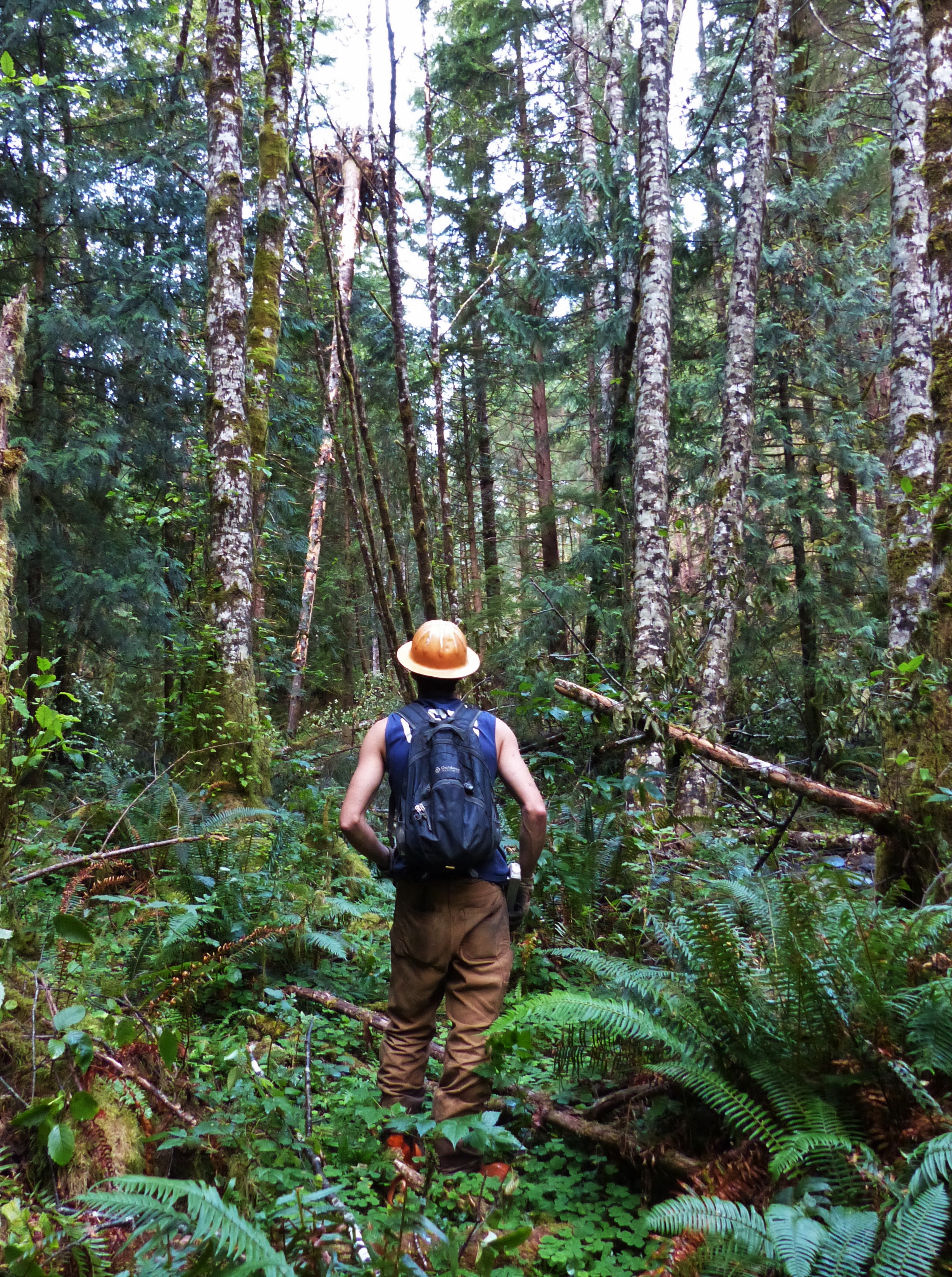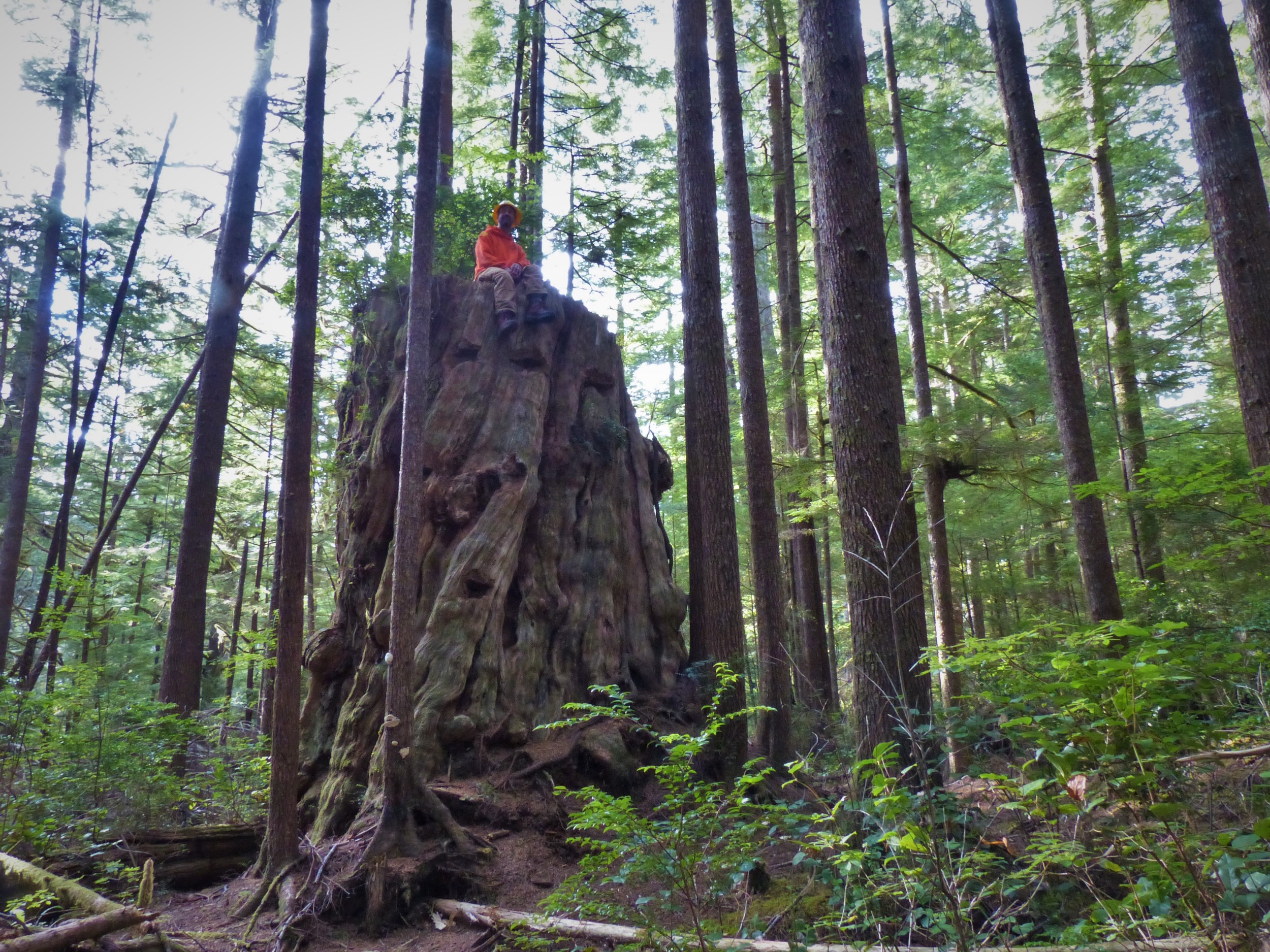Written and Photographed by David Ryan, Field Forester, Willapa Bay
“We abuse land because we regard it as a commodity belonging to us. When we see land as a community to which we belong, we may begin to use it with love and respect.”
I will start off by saying that A Sand County Almanac changed my life. It is packed with quotably profound thoughts and ideas on every page. I could have chosen a hundred (or more) different quotes to riff on. Leopold is astute, prescient, and an excellent writer. If you haven’t already done so, get this book, read it, then read it again, and encourage your friends and family to read it. If you did nothing else with rest of your life but read this book, you would be better off for it.
Leopold does not seem to espouse the utilitarian vision of natural resource management that Gifford Pinchot did. Neither does he reject pragmatic uses of natural resources. Use of the land is appropriate, as long as that use comes from a place of respect rather than dominance. The belief in dominance over a landscape is delusional. As human beings we may seemingly be able to impose our will on the land, but if that mindset leads to arrogance and abuse in our treatment then we as a community will suffer for our hubris. The term “land ethic” as expounded on by Aldo Leopold involved the recognition of, and respect for, the communities of which we are part. The dominant feature of any community is the land base and its interconnected parts. We must learn to balance our roles within that web. This is not a new idea and was one fostered by many cultures throughout history. Leopold managed to adroitly articulate this concept and carry it forward to a wider audience.
Ellsworth Creek Preserve is my best chance to manifest the ideals espoused by Aldo Leopold on a significant scale. As a forester I am, by definition, a steward of the land. And, as a forester, my impact on this planet is quantifiable. The metrics vary; board feet, basal area, dollars, canopy cover, crown ratio, trees per acre, rings per inch, species composition, and miles of road are among a long list of the units we track. Some units denote commodities for human use while others are biological/ecological traits that we must understand in order to be an effective steward. All of these metrics ultimately measure an impact on acres of land and the communities surrounding that land.
One may think of those metrics as the language of the land spoken in terms understandable to human beings. The ability to measure and comprehend those ecologic parameters is an important part of showing our love and respect; and balancing our role in the community. Just as when visiting a foreign country where English is not spoken, the local people often appreciate it if we make the effort to understand the basics and try to converse with them in their language. It is indicative of a respect for the indigenous cultures and our travels are often much better for the occasional discomfort or embarrassment as we reach out with an earnest desire to learn.
One key way I try to be a part of the community and treat it with love and respect is by learning the language, thereby learning the properties, the needs, and how to better care for that landscape. Ultimately, rather than making the forest work for me, I try to work for the forest.
Next: Chief Seattle.
























